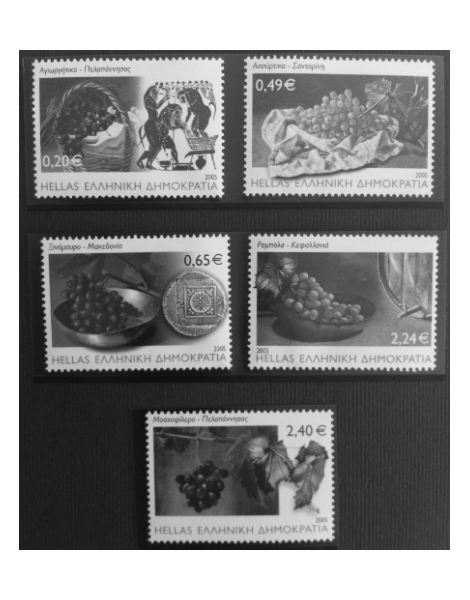The renaissance of Greek wine came late in the 20th century. The Second World War left a nation immersed in poverty and people started moving to the big cities, trying their luck for a better tomorrow. The Greek spirit went rapidly into gear and economy improved correspondingly. At that time, bulk wine dominated the market, while most families had at least one relative supplying wine from his own barrels. Increasing urbanisation, however, made “village wine” less readily available, so most of consumers were obliged to change their habits. At first, bottled wine was a novelty and frequently viewed as something far less pure than bulk wine. Despite this widespread notion, rising living standards in the 1960s put bottled wine much in vogue.
These were the days of few wine companies bottling part of their production and focusing on the high-volume, low-price end of the market. In the 1950s and ’60s, there were very few Domaines in Greece, in the French meaning of the word – small- sized expenditures crafting prestigious wines from their own vineyards. A number of estates like this appeared in the ’70s, becoming a strong trend in the late ’80s and known thereafter as the “small producers’ revolution”.
The reasons behind this significant development were varied and came from a number of directions. The most significant could possibly be found on the consumption end, with enough wine lovers willing and able to afford and sustain premium prices. Few of these wine amateurs, with enough passion and more than enough money, decided to invest in wine production, creating the state-of-the-art wineries of the time and stunning vineyards. It might have originally been a lifestyle choice, but they swiftly understood that there was plenty of business potential.
The ventures established by “outsiders”, as well as the large wine producers, needed qualified winemakers to achieve high quality. This gap was rapidly filled by several young, ambitious oenologists who studied abroad, mainly in Bordeaux, Dijon and Montpellier. In time, a second wave of small wineries emerged from these schooled winemakers, hoping to make a name for themselves or seeking to chase their visions with no compromises.
The following decades were an extremely exciting era for Greek wines. The “rebels” and the “intruders” of the recent past increased in size and managed to create a huge impact on the marketplace. Wine production suddenly became attractive, inviting many other people to invest in wineries and vineyards. Families involved in grape growing or in wine production for generations gathered the courage to bottle and trade their wines under their own name. The large companies, in a sense losing their monopoly, attacked the competition with even better and more interesting wines. Needless to say, this booming wine industry was wholeheartedly supported by an expanding and discerning consumer base.
The second decade of the 21st century finds the Greek wine industry entering a thriving stage of constant development. The production pattern is of high quality and complex, engulfing boutique, artisan growers, large, modern wineries and everything in between. Most of the production facilities are now cutting edge and leave nothing to desire when compared to worldwide top-notch practices. The increasing level of confidence in the cellar allows wine makers to take a closer look at the vineyards, exploiting the immense and largely untapped possibilities of local grape varieties. Today, if there is one disadvantage of Modern Greek Wine, it is a relative lack of product awareness in some of the main export markets of the world. But then, again, some might think that precisely this is Greece’s main competitive advantage.

